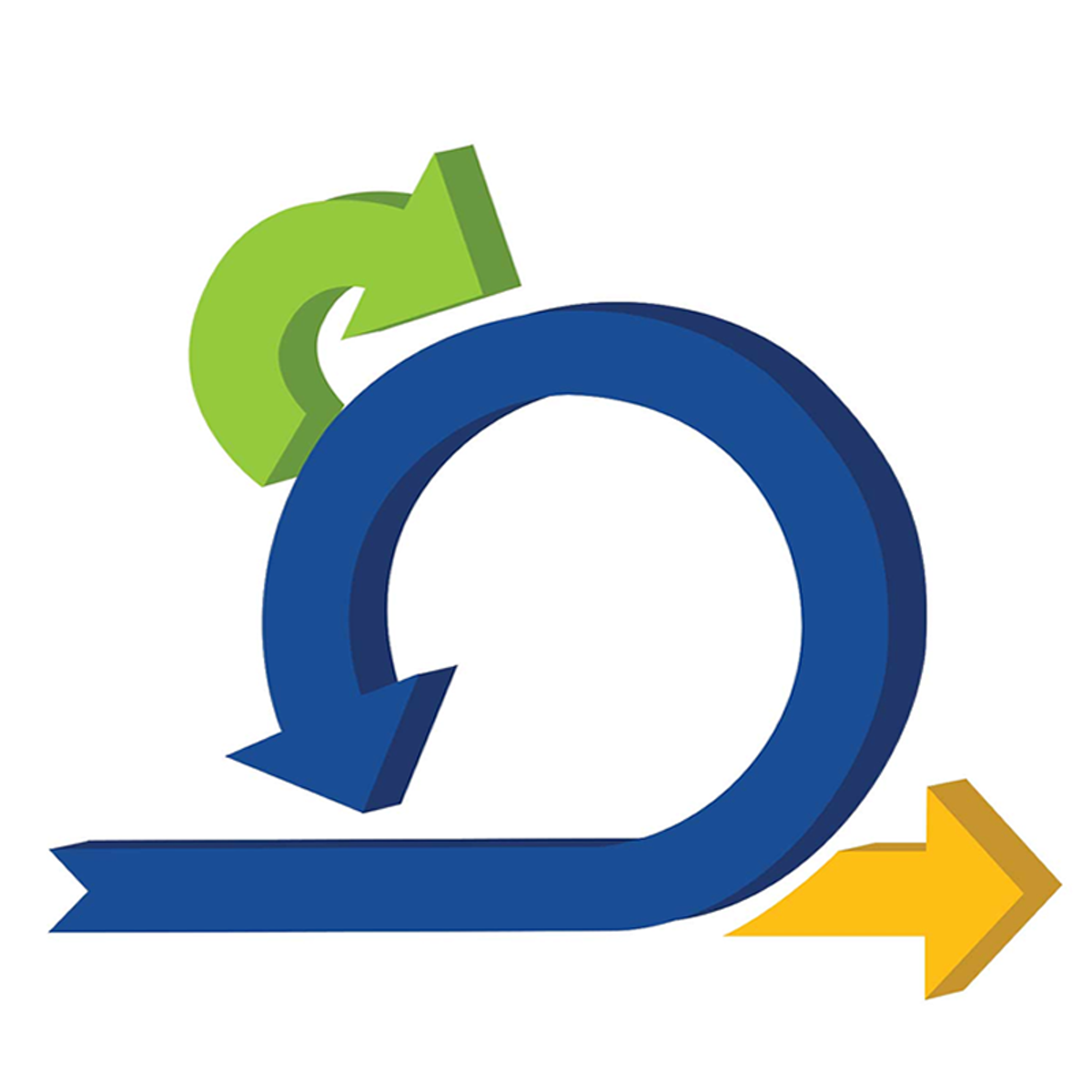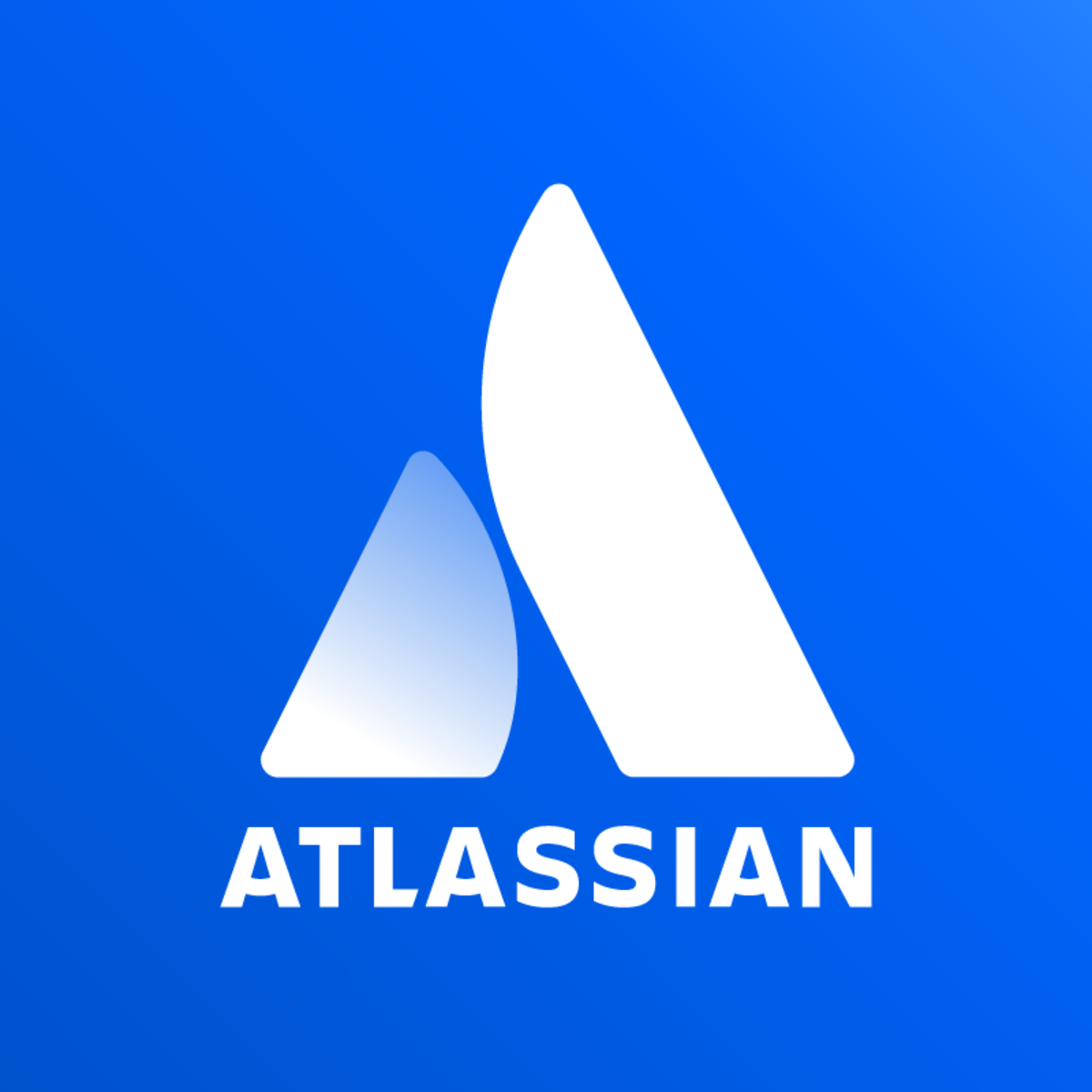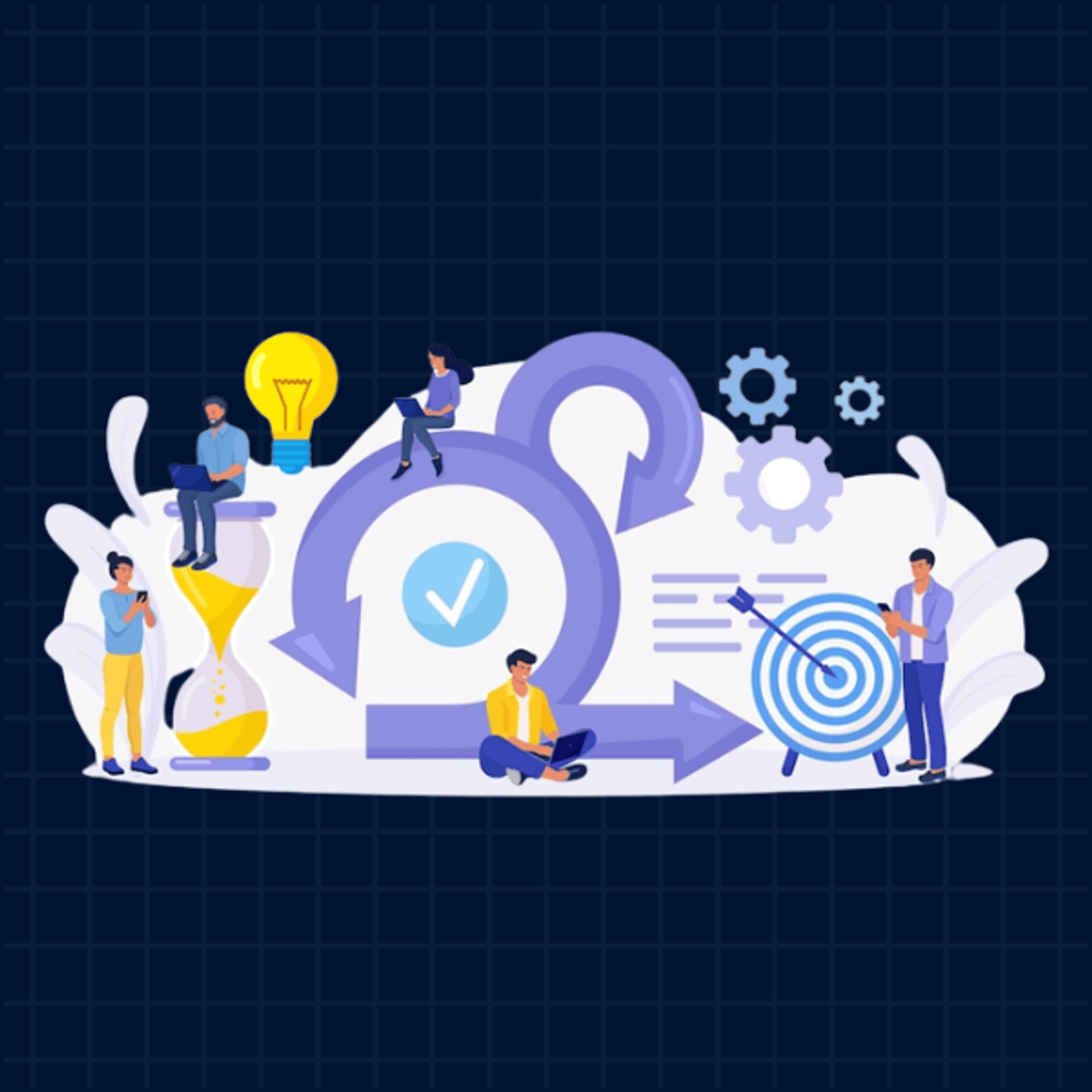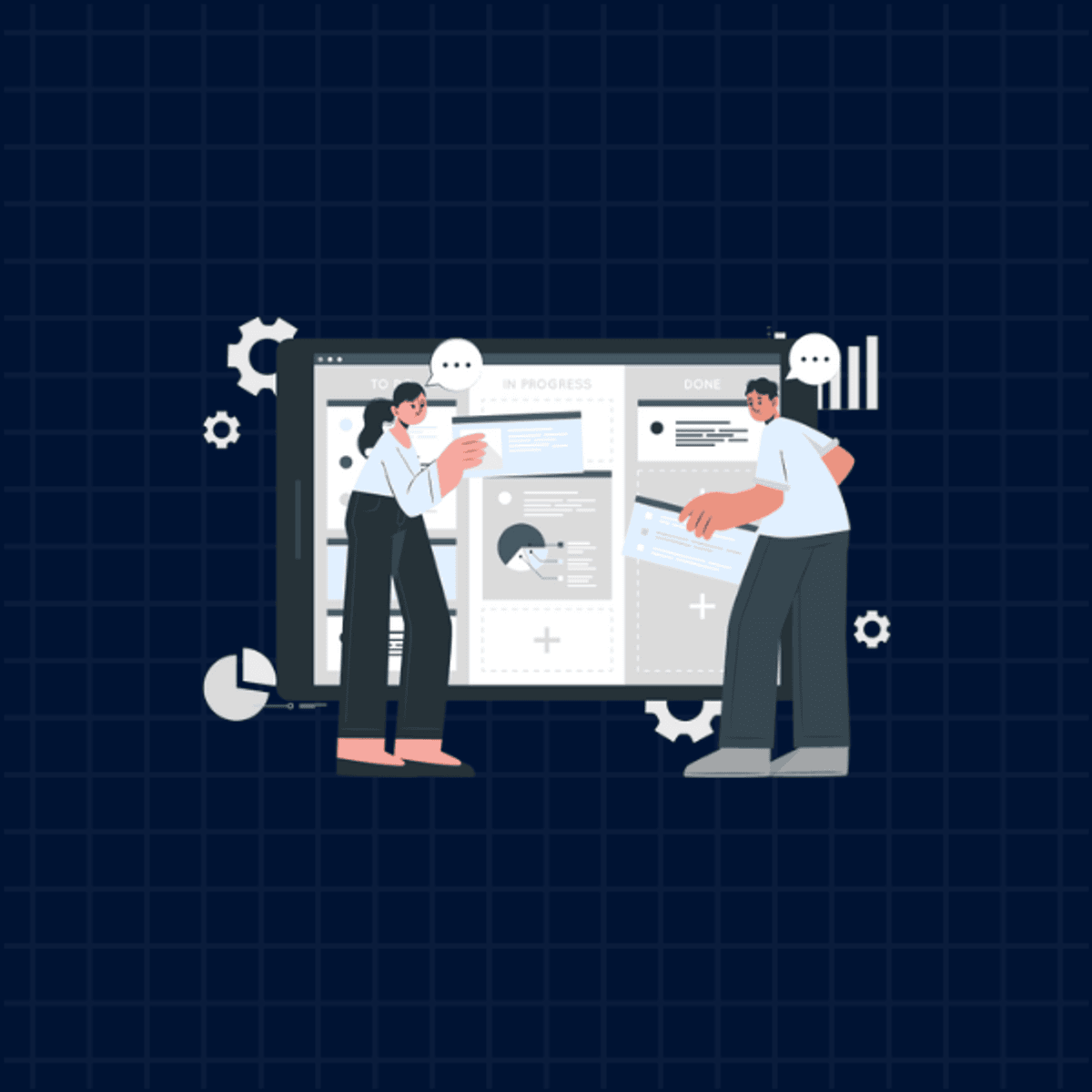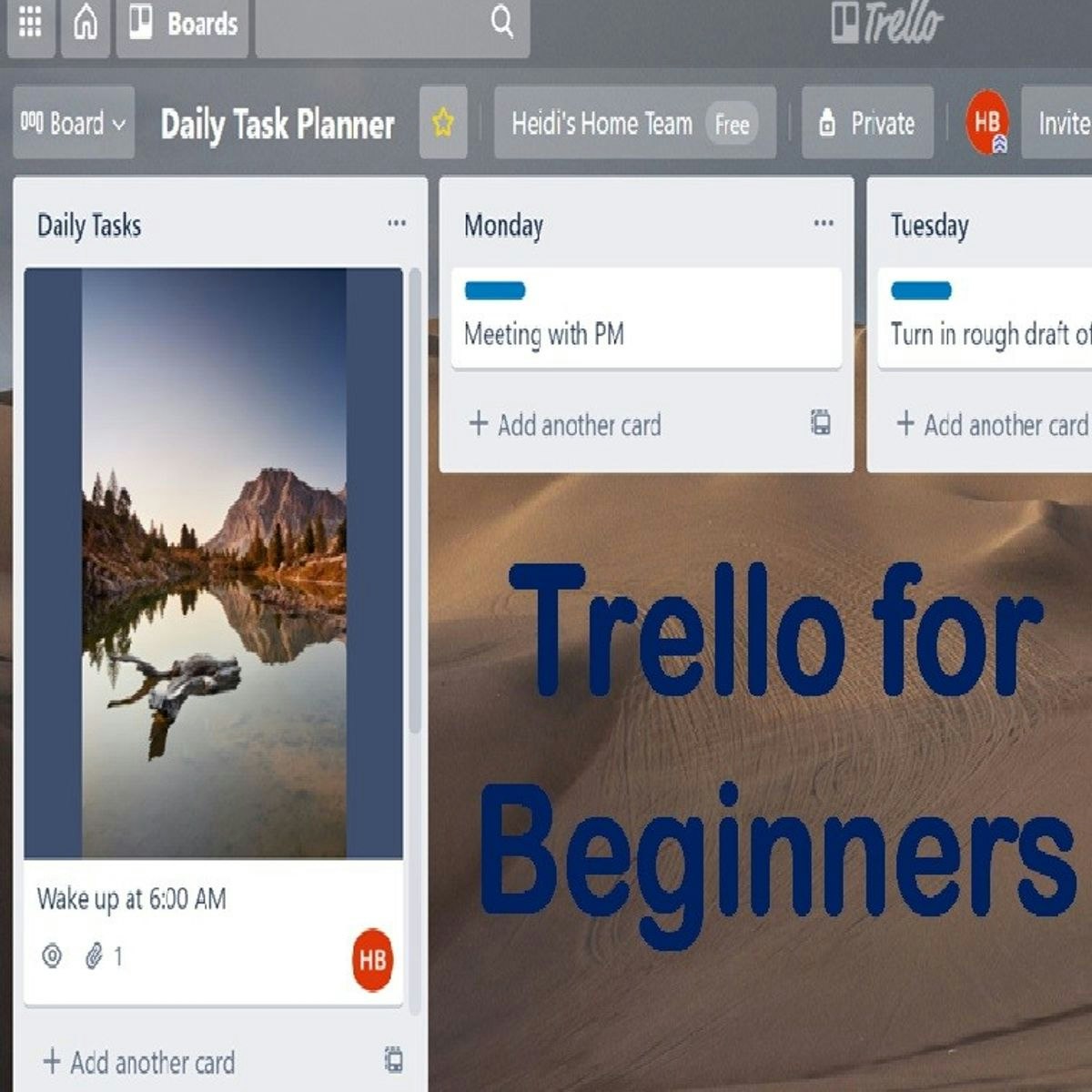Agile Coach
Agile Coach: A Comprehensive Career Guide
An Agile Coach is a professional who helps organizations, teams, and individuals adopt and improve Agile practices and mindsets. They act as mentors, facilitators, teachers, and change agents, guiding entities through the transition towards more flexible, collaborative, and customer-focused ways of working. The goal is to enhance productivity, improve product quality, and foster a culture of continuous improvement.
Working as an Agile Coach can be deeply rewarding. You get to empower teams, witness tangible improvements in processes, and help shape a more responsive and adaptive organizational culture. It involves a dynamic mix of problem-solving, communication, and strategic thinking, making it an engaging field for those passionate about both people and processes.
Introduction to Agile Coaching
What is an Agile Coach?
At its core, an Agile Coach helps teams and organizations implement and refine Agile methodologies. This involves more than just teaching processes; it's about instilling an Agile mindset—principles like collaboration, self-organization, adaptation, and delivering value incrementally. They work at various levels, from individual teams to entire enterprises, tailoring approaches to specific contexts.
The scope of an Agile Coach extends beyond technical practices. They often address organizational structures, leadership styles, and cultural barriers that hinder agility. Their ultimate aim is to build self-sufficient, high-performing Agile teams and foster an environment where agility can thrive sustainably throughout the organization.
To achieve this, coaches employ various techniques, including one-on-one mentoring, team workshops, facilitating key meetings (known as ceremonies), and providing feedback. They assess the Agile maturity of teams and help them identify and overcome impediments to progress, fostering continuous learning and adaptation.
A Brief History and Evolution
The concept of Agile Coaching emerged from the Agile software development movement, formalized by the Agile Manifesto in 2001. Initially, roles like the Scrum Master focused on guiding individual teams using specific frameworks like Scrum. However, as organizations sought broader Agile transformations, the need for a more holistic coaching role became apparent.
Early Agile Coaches often came from project management or software development backgrounds. Over time, the role evolved to incorporate expertise from organizational development, change management, professional coaching, and systems thinking. This reflects the understanding that successful Agile adoption is as much about cultural change as it is about process implementation.
Today, Agile Coaching is a recognized profession with established competencies and certification paths. Coaches operate at different scales, specializing in areas like team coaching, enterprise coaching, or technical coaching, responding to the complex needs of modern organizations striving for agility.
These books offer foundational insights into Agile principles and practices that underpin the coaching role.
Core Objectives of an Agile Coach
The primary objective of an Agile Coach is to improve an organization's or team's ability to deliver value efficiently and effectively using Agile principles. This involves enhancing collaboration, increasing transparency, and promoting adaptability to changing requirements or market conditions. Coaches strive to build internal capabilities, making themselves progressively less needed over time.
Another key objective is fostering a culture of continuous improvement (often referred to as 'Kaizen'). Coaches guide teams in reflecting on their processes, identifying bottlenecks, and experimenting with solutions. This empowers teams to own their improvement journey and adapt practices to their unique context.
Ultimately, an Agile Coach aims to increase organizational agility. This means helping the organization respond quickly and effectively to market changes, customer needs, and competitive pressures. They work towards creating resilient, learning organizations capable of sustained success in complex environments.
Agile Coach vs. Related Roles
While related, an Agile Coach differs from roles like Scrum Master or Project Manager. A Scrum Master typically focuses on helping a specific team adhere to the Scrum framework, removing impediments, and facilitating Scrum events. Their scope is usually confined to one or a few teams.
A Project Manager, often operating in traditional or hybrid environments, focuses on planning, executing, and closing projects, managing scope, budget, and timelines. While some project managers adopt Agile techniques, their core focus remains project delivery, often with less emphasis on systemic organizational change or team development.
An Agile Coach, in contrast, often works across multiple teams or even the entire enterprise. They focus on developing Agile capabilities, coaching Scrum Masters and leaders, addressing systemic impediments, and guiding broader organizational change. Their role is more strategic and transformational compared to the typically team-focused Scrum Master or project-focused Project Manager.
These courses explore the nuances of Agile project management and the Scrum framework, highlighting the distinctions between roles.
Key Responsibilities of an Agile Coach
Facilitating Agile Ceremonies and Practices
A significant part of an Agile Coach's role involves facilitating key Agile meetings, often called 'ceremonies' in frameworks like Scrum. This includes sprint planning sessions, daily stand-ups (or daily Scrums), sprint reviews, and retrospectives. Effective facilitation ensures these meetings are productive, inclusive, and achieve their intended outcomes.
Beyond formal ceremonies, coaches help teams implement and refine various Agile practices. This might involve introducing techniques for backlog refinement, improving user story writing, implementing visual management tools like Kanban boards, or adopting technical practices associated with Agile development (like pair programming or test-driven development).
The coach ensures these practices are understood not just as routines, but as tools that embody Agile principles like transparency, inspection, and adaptation. They help teams tailor practices to their context rather than applying them rigidly.
These courses cover fundamental Agile practices and facilitation techniques.
Mentoring Teams and Individuals on Agile Principles
Mentoring is a crucial responsibility. Agile Coaches work closely with team members, Scrum Masters, Product Owners, and leaders to deepen their understanding and application of Agile principles and values. This often involves one-on-one sessions, targeted training, and providing constructive feedback.
They help individuals develop specific skills needed for their Agile roles. For instance, coaching a Product Owner on backlog prioritization techniques or mentoring a Scrum Master on conflict resolution skills within the team. The focus is on building capability and self-sufficiency.
Coaches also guide teams in embracing Agile values like openness, courage, respect, focus, and commitment. They help teams navigate challenges related to collaboration, communication, and accountability, fostering a psychologically safe environment where Agile behaviors can flourish.
These resources provide insights into developing Agile teams and leadership.
Addressing Organizational Impediments and Resistance
Agile adoption often faces resistance and encounters systemic obstacles within an organization. Agile Coaches play a vital role in identifying these impediments, which might stem from existing structures, processes, culture, or leadership behaviors. They work to make these impediments visible to relevant stakeholders.
Addressing these requires navigating organizational politics, influencing stakeholders, and facilitating difficult conversations. Coaches might work with leadership to redesign processes, adjust team structures, or advocate for changes in policies that conflict with Agile principles.
They also help teams and individuals overcome resistance to change by explaining the 'why' behind Agile, addressing fears and misconceptions, and celebrating small wins. Building trust and demonstrating the value of Agile practices are key strategies in mitigating resistance.
This course touches upon organizational aspects of Agile adoption.
This book discusses managing change, a core skill for coaches addressing resistance.
Measuring Agile Maturity and Performance
While Agile emphasizes outcomes over rigid metrics, measurement is still important. Agile Coaches help teams and organizations identify meaningful metrics to track progress, assess Agile maturity, and make informed decisions. This goes beyond simple velocity tracking.
Coaches might introduce metrics related to flow efficiency (e.g., cycle time, lead time), product quality (e.g., defect rates), customer satisfaction, team health, and business value delivered. The focus is on using metrics for learning and improvement, not for comparing teams or individuals punitively.
They also facilitate Agile maturity assessments, helping teams understand their current state and identify areas for growth. This involves observing practices, gathering feedback, and using frameworks or models to guide the assessment process, always ensuring the goal is improvement, not judgment.
Understanding how to measure and demonstrate progress is crucial. These resources offer perspectives on metrics and value.
Formal Education Pathways
Relevant Academic Backgrounds
While there isn't one specific degree required to become an Agile Coach, certain academic backgrounds can provide a strong foundation. Degrees in Computer Science or Software Engineering are common, particularly for coaches working closely with development teams, as they provide technical context.
However, backgrounds in fields like Organizational Psychology, Business Administration, Management, or Communication Studies are also highly relevant. These fields equip individuals with knowledge about organizational dynamics, change management, leadership, and effective communication – all crucial for coaching.
Ultimately, practical experience and demonstrated Agile expertise often weigh more heavily than a specific degree. Many successful Agile Coaches transition from roles like project manager, developer, business analyst, or QA analyst after gaining substantial experience with Agile methodologies.
Graduate Studies and Specializations
Advanced degrees, such as a Master's in Business Administration (MBA) with a focus on leadership or organizational change, or specialized Master's programs in fields like Organizational Development or Technology Management, can be beneficial. These programs often delve deeper into strategic thinking, systems theory, and leadership dynamics relevant to enterprise-level coaching.
Some universities are beginning to offer graduate certificates or specializations specifically in Agile leadership or project management. These programs provide targeted academic knowledge that complements practical experience and industry certifications.
Doctoral research (PhD) in areas related to Agile methodologies, team dynamics, organizational change, or software engineering processes can also be a pathway, particularly for those interested in contributing to the academic understanding of Agile or working in research-oriented roles within large organizations or consultancies.
Key Certifications
Industry certifications are highly valued in the Agile Coaching field. Organizations like the ICAgile (International Consortium for Agile) offer multi-level certification tracks specifically for Agile Coaching (ICP-ACC, ICP-ATF, ICP-ENT, ICP-CAT). These focus on developing coaching competencies.
The Scrum Alliance offers advanced certifications building on the Certified Scrum Master (CSM), such as the Certified Agile Coach (CAC), which includes Certified Team Coach (CTC) and Certified Enterprise Coach (CEC) designations. These require significant experience and rigorous evaluation.
Other relevant certifications include those from Scaled Agile, Inc. (e.g., SAFe Program Consultant - SPC) for coaches working in large enterprises using the Scaled Agile Framework (SAFe), and certifications from coaching bodies like the International Coaching Federation (ICF), which validate professional coaching skills applicable in an Agile context.
These courses can help prepare for foundational or advanced certifications.
Online Learning and Self-Guided Training
Transitioning via Online Education
Online courses offer a flexible and accessible route for individuals looking to transition into Agile Coaching or enhance their existing skills. Platforms like OpenCourser aggregate thousands of courses covering foundational Agile principles, specific frameworks (Scrum, Kanban, SAFe), coaching techniques, facilitation skills, and leadership development.
For career pivoters, online learning allows you to acquire necessary knowledge at your own pace, often while still employed. Completing relevant courses and earning certificates can demonstrate initiative and foundational understanding to potential employers, supplementing practical experience.
Online education is particularly valuable for exploring different facets of Agile and coaching before committing to expensive certifications or formal programs. It provides a cost-effective way to build a solid theoretical base and identify areas of interest within the broad field of Agile Coaching.
These courses provide comprehensive introductions suitable for those starting their Agile journey online.
Balancing Theory and Practice
While online courses provide essential knowledge, practical application is critical for becoming an effective Agile Coach. Look for courses that include case studies, simulations, or project-based work to bridge the gap between theory and practice. Applying concepts in even simulated scenarios helps solidify understanding.
Supplement online learning by seeking opportunities for hands-on experience. This could involve volunteering to facilitate retrospectives for a community group, applying Agile principles to personal projects, or taking on Agile-related responsibilities within your current role, even if unofficial.
Consider joining Agile meetups or communities of practice (often found online) to discuss challenges, share experiences, and learn from peers. Engaging with the broader Agile community provides invaluable practical insights that complement formal learning.
These books offer practical guidance and real-world application insights.
Using Online Resources for Certification Prep
Many online courses are specifically designed to help learners prepare for Agile certifications like the Certified Scrum Master (CSM), Professional Scrum Master (PSM), or PMI Agile Certified Practitioner (PMI-ACP). These often include practice exams, targeted content reviews, and exam-taking strategies.
Beyond structured courses, numerous online resources like blogs, webinars, podcasts, and articles from reputable Agile practitioners and organizations offer valuable insights and study materials. Utilize these resources to deepen your understanding of specific topics covered in certification exams.
OpenCourser's platform can help you find and compare certification prep courses. Use the "Save to list" feature to curate potential study resources and explore course reviews to gauge their effectiveness in preparing learners for specific exams.
Building a Portfolio through Projects
A portfolio showcasing practical Agile application can significantly strengthen your profile, especially when transitioning careers. Document projects where you applied Agile principles, detailing the context, your role, actions taken, and outcomes achieved. This could include work projects, volunteer initiatives, or even substantial personal projects managed with Agile methods.
Consider contributing to open-source projects that use Agile workflows. This provides real-world collaboration experience and tangible evidence of your ability to work within an Agile environment. Document your contributions and the team processes used.
If direct coaching opportunities are limited, create case studies based on public information or hypothetical scenarios. Analyze a situation, propose an Agile coaching approach, and outline potential interventions and expected outcomes. This demonstrates your analytical and problem-solving skills within an Agile context.
This course focuses on practical application within a popular Agile tool.
Explore Project Management courses on OpenCourser to find opportunities for hands-on project work.
Career Progression for Agile Coaches
Typical Entry Points
Many Agile Coaches begin their journey in related roles within Agile teams. The most common entry point is often the Scrum Master role, providing hands-on experience facilitating team processes and removing impediments. Experience as a Product Owner, focusing on value delivery and stakeholder management, is another frequent starting point.
Individuals from technical backgrounds, such as senior developers or QA leads who champion Agile practices, may also transition into coaching roles, often starting as team-level technical coaches. Similarly, experienced Project Managers or Business Analysts who gain deep Agile expertise can pivot into coaching.
Promotion Pathways
Career progression often involves expanding scope and influence. A coach might start working with a single team (Team-Level Coach) and progress to coaching multiple teams or an entire program or department. This requires developing skills in scaling Agile practices and navigating more complex organizational dynamics.
The next level is often the Enterprise Agile Coach, who works across the entire organization, influencing senior leadership, shaping Agile transformation strategy, and addressing systemic cultural and structural impediments. This role demands strong strategic thinking, executive presence, and organizational change expertise.
Some coaches specialize in specific areas like technical coaching (focusing on engineering practices like DevOps), leadership coaching (working with managers and executives), or business agility coaching (helping non-IT departments adopt Agile ways of working).
These courses delve into scaling Agile and enterprise-level considerations.
Parallel Roles and Opportunities
Experienced Agile Coaches possess skills valuable in various related roles. Many transition into broader organizational change management or transformation consultant roles, leveraging their expertise in guiding large-scale change initiatives beyond just Agile adoption.
Some move into leadership positions, such as Director of Agile Delivery or Head of Transformation, overseeing the organization's overall Agile strategy and coaching capabilities. Others leverage their deep process understanding to become operations managers or value stream managers.
Consulting is another common path, either with established firms or as independent consultants, offering Agile coaching services to various clients. Some coaches also move into training roles, developing and delivering Agile courses and workshops.
Long-Term Prospects
The long-term prospects for skilled Agile Coaches appear strong, as organizations across industries continue to recognize the need for agility to navigate a rapidly changing world. The demand extends beyond IT departments into areas like marketing, HR, and finance.
Top-tier Enterprise Agile Coaches can attain significant influence, advising C-suite executives on organizational strategy and transformation. Some may even transition into executive leadership roles themselves, such as Chief Transformation Officer or Chief Operating Officer, especially in technology-driven companies.
The field continues to evolve, with growing emphasis on business agility, Lean principles, and integrating Agile with other frameworks like Design Thinking. Coaches who continuously learn and adapt their skills to these evolving needs are likely to find sustained career opportunities and growth.
Agile Coach in Global and Cross-Cultural Contexts
Regional Demand Variations
The demand for Agile Coaches varies significantly across different regions and industries. Technology hubs and sectors with rapid product development cycles (like software, finance, and telecom) typically show the highest demand, particularly in North America and Western Europe.
Emerging markets in Asia, Latin America, and Eastern Europe are also experiencing growing demand as more companies embrace digital transformation and Agile methodologies. However, the maturity of Agile adoption and the specific needs for coaching can differ, influencing the type of coaching roles available.
Traditional industries (e.g., manufacturing, government) are increasingly exploring Agile, creating new opportunities for coaches. However, adoption might be slower, and coaches may face different challenges related to legacy systems and deeply ingrained cultures compared to tech-native companies.
Adapting Agile to Diverse Cultures
Applying Agile principles effectively requires sensitivity to cultural nuances. Practices that work well in one corporate or national culture might need adaptation elsewhere. For example, communication styles, attitudes towards hierarchy, and decision-making processes vary globally.
An effective global Agile Coach understands these differences and adapts their approach accordingly. This might involve modifying facilitation techniques, adjusting communication strategies, or finding culturally appropriate ways to foster Agile values like transparency and direct feedback.
Coaching in multinational organizations often requires navigating diverse cultural perspectives within the same team or enterprise. Coaches need strong cross-cultural communication skills and the ability to build bridges between different working styles.
Remote Coaching Challenges and Tools
The rise of remote and hybrid work presents unique challenges and opportunities for Agile Coaches. Building trust, observing team dynamics, and facilitating engaging sessions can be more difficult without face-to-face interaction. Coaches must master virtual facilitation techniques and tools.
Digital collaboration platforms like Miro, Mural, Trello, Jira, and specialized remote coaching tools become essential. Coaches need proficiency in leveraging these tools to create interactive workshops, visualize workflows, and maintain team connection and transparency in a distributed setting.
Addressing 'Zoom fatigue' and ensuring equitable participation from remote and in-office team members in hybrid settings are key challenges. Coaches must design inclusive processes and be mindful of the different experiences of distributed team members.
Multinational Agile Transformations
Guiding Agile transformations in large multinational corporations involves additional layers of complexity. Differing regulations, market conditions, time zones, languages, and cultural norms across regions must be considered when designing and implementing the transformation strategy.
Coaches involved in such transformations need a strong understanding of scaling frameworks (like SAFe, LeSS, or Nexus) and experience adapting them to diverse global contexts. They often work as part of a larger transformation team, coordinating efforts across different business units and geographies.
Success requires strong stakeholder management skills, the ability to build alliances across cultural boundaries, and a pragmatic approach that balances global consistency with local adaptation. Case studies from organizations like McKinsey suggest that tailoring the approach while maintaining core principles is key.
This course examines organizational change theories applicable to large transformations.
Ethical Challenges for Agile Coaches
Balancing Team Autonomy and Organizational Goals
Agile emphasizes self-organizing teams, but these teams operate within a larger organizational context with strategic goals and constraints. Coaches often face the ethical tension of championing team autonomy while ensuring alignment with broader business objectives. This requires careful navigation and transparency.
Coaches must help teams understand organizational boundaries and priorities without stifling their initiative or undermining their sense of ownership. Conversely, they may need to advocate for teams when organizational demands seem unreasonable or impede Agile ways of working.
Finding the right balance involves facilitating open communication between teams and leadership, promoting shared understanding, and helping both sides appreciate the constraints and perspectives of the other. It's a delicate act of mediation and advocacy.
Handling Confidentiality in Coaching
Agile Coaches often gain access to sensitive information about team performance, interpersonal dynamics, individual concerns, and organizational challenges. Maintaining confidentiality is paramount to building trust, which is the foundation of any effective coaching relationship.
Ethical dilemmas arise when information shared in confidence relates to systemic issues or risks that need broader attention. Coaches must discern when and how to surface themes or patterns without betraying individual confidences, often requiring anonymization or seeking explicit permission.
Clear agreements about confidentiality should be established upfront with teams and individuals. Coaches must be transparent about the limits of confidentiality, particularly concerning illegal activities or significant risks to the organization or its members.
Avoiding Bias in Assessments and Feedback
Coaches are frequently involved in assessing team maturity, performance, or individual contributions. It's crucial to conduct these assessments objectively and avoid personal biases related to individuals, specific roles, or preferred ways of working. Unconscious bias can unfairly influence evaluations and feedback.
Using structured assessment frameworks, gathering data from multiple sources, and focusing on observable behaviors rather than personality judgments can help mitigate bias. Seeking feedback on one's own observations and interpretations from other coaches or trusted colleagues can also provide a valuable check.
Providing feedback, a core coaching activity, must also be handled ethically. Feedback should be specific, constructive, timely, and focused on behavior or performance, not personal attributes. Coaches must ensure feedback aims to support growth, not to criticize or demean.
This course touches on communication and feedback, key areas for ethical considerations.
Sustainability and Burnout Prevention
Agile's focus on delivering value quickly can sometimes lead to unsustainable pressure on teams if not managed carefully. Coaches have an ethical responsibility to advocate for sustainable pace and help teams recognize and address signs of burnout.
This involves coaching teams on realistic planning, managing technical debt, prioritizing effectively, and protecting time for learning and improvement. It may also require challenging organizational expectations or policies that contribute to overwork.
Coaches themselves are also susceptible to burnout due to the demanding nature of the role. Ethical self-care involves recognizing one's own limits, seeking support, maintaining professional boundaries, and continuously developing one's skills to handle challenging situations effectively.
Market Trends Impacting Agile Coaching
Shift Toward Hybrid Frameworks
While pure implementations of Scrum or Kanban exist, many organizations are adopting hybrid approaches, blending Agile practices with elements of traditional project management (sometimes called "Wagile" or Agile-Waterfall hybrids). Coaches need to understand how to navigate these mixed environments effectively.
This trend requires coaches to be flexible and pragmatic, helping teams apply Agile principles within potentially constraining structures. They need skills in integrating different methodologies and facilitating collaboration between Agile and non-Agile parts of the organization.
The rise of frameworks designed for scaling Agile across large enterprises, like SAFe, LeSS, and Nexus, also represents a shift. Coaches increasingly need expertise in one or more of these frameworks to guide larger transformations.
AI Tools in Agile Workflow Automation
Artificial Intelligence (AI) is beginning to impact Agile practices. AI-powered tools are emerging to automate tasks like backlog analysis, risk prediction, progress reporting, and even generating user stories or code snippets. Coaches need to understand the potential and limitations of these tools.
This trend doesn't necessarily replace coaches but changes their focus. Coaches may need to help teams effectively integrate AI tools into their workflows, interpret AI-generated insights, and ensure that automation doesn't undermine core Agile principles like collaboration and human judgment.
Ethical considerations around AI, such as bias in algorithms or data privacy, also become relevant for coaches guiding the adoption of these tools. Staying informed about AI developments is becoming increasingly important for the profession.
Impact of Economic Conditions
Economic downturns can impact investment in Agile transformations and coaching roles. Organizations may prioritize cost-cutting, potentially reducing budgets for external coaches or internal coaching teams. Coaches need to clearly articulate the value they bring in terms of efficiency, risk reduction, and value delivery.
However, economic pressures can also drive organizations towards greater efficiency and adaptability, potentially increasing the perceived value of Agile approaches. Coaches who can demonstrate a direct link between Agile practices and business results may find continued demand even in challenging economic climates.
The trend towards remote work, accelerated by recent global events, also impacts the market. Coaches with strong virtual facilitation and remote team-building skills are likely to be more in demand.
Emergence of Niche Coaching Areas
As Agile adoption matures, specialized coaching niches are emerging. DevOps coaching, focusing on integrating development and operations practices to enable continuous delivery, is a significant area of growth. Coaches with technical backgrounds and DevOps expertise are highly sought after.
Other niche areas include coaching in specific domains like Business Agility (applying Agile outside IT), Hardware Agility, or coaching related to specific tools and platforms (e.g., Azure DevOps or Jira Align coaching). Specialization can provide a competitive edge in the job market.
This requires continuous learning and potentially acquiring deeper expertise in specific technical domains, industries, or advanced Agile frameworks. Coaches need to stay attuned to market shifts and identify emerging areas where their skills can add significant value.
Frequently Asked Questions (Career Focus)
Is Agile Coaching a Viable Long-Term Career?
Yes, Agile Coaching appears to be a viable long-term career. As organizations across industries increasingly recognize the need for adaptability and efficiency, the demand for individuals who can guide Agile transformations remains strong. The principles of agility are applicable beyond software development, opening up opportunities in diverse sectors.
The role itself is evolving, requiring continuous learning and adaptation. Long-term viability likely depends on a coach's ability to evolve their skills, potentially specializing or moving into broader organizational transformation roles. As long as change is constant, the need for guiding that change effectively will persist.
While specific titles might change, the core competencies of facilitation, mentoring, change leadership, and fostering continuous improvement are timeless and transferable, suggesting strong long-term prospects for those who cultivate these skills.
What Industries Hire the Most Agile Coaches?
Historically, the technology and software development industries have been the largest employers of Agile Coaches. Financial services, insurance, and telecommunications sectors also have significant demand due to their reliance on technology and need for rapid adaptation.
In recent years, demand has grown in other sectors undertaking digital transformations, including retail, healthcare, manufacturing, and even government agencies. Consulting firms that specialize in Agile transformations are also major employers.
Essentially, any industry facing disruption, needing to improve product development cycles, or seeking greater organizational responsiveness is a potential market for Agile Coaches. The breadth of opportunities continues to expand beyond traditional IT-heavy sectors.
Can You Become an Agile Coach Without a Technical Background?
Yes, it is possible to become an Agile Coach without a deep technical background, although it presents certain challenges and may influence the types of coaching roles you pursue. Strong skills in facilitation, communication, change management, and people development are crucial and can be leveraged effectively.
Coaches without technical backgrounds often excel in areas like process coaching, team dynamics, organizational change, and coaching leaders or Product Owners. They might find it harder to engage in deep technical coaching with development teams regarding engineering practices.
Building a foundational understanding of the software development lifecycle and common technical challenges can be beneficial. Collaborating with technically-oriented coaches can also be an effective strategy. Many successful coaches come from backgrounds like project management, business analysis, HR, or organizational development.
How Does Agile Coaching Salary Compare to Related Roles?
Salaries for Agile Coaches vary widely based on experience, location, certifications, industry, and whether the role is team-level or enterprise-level. Generally, Agile Coach salaries tend to be competitive and often higher than those for related roles like Scrum Master or Project Manager, reflecting the broader scope and strategic nature of the role.
Entry-level or team coaches might have salaries comparable to experienced Scrum Masters or senior Project Managers. Enterprise Agile Coaches, especially those with significant experience and specialized skills working at a strategic level, can command substantial salaries, often comparable to senior management or director-level positions.
External consultants often charge premium rates. Salary data from sources like Robert Half or industry surveys specific to Agile roles can provide more precise benchmarks for different regions and experience levels, though Agile Coach isn't always listed as a distinct category in broad government surveys like those from the Bureau of Labor Statistics.
Do Agile Coaches Face Automation Risks?
While some tasks associated with Agile processes might be automated by AI or other tools (e.g., reporting, basic analysis), the core functions of an Agile Coach – mentoring, complex facilitation, navigating organizational culture, building trust, and guiding strategic change – are less susceptible to automation. These require nuanced human interaction, empathy, and contextual understanding.
The role may evolve, with coaches leveraging AI tools to augment their capabilities or focus on higher-level strategic and systemic challenges. Coaches who focus primarily on routine process enforcement might face more risk than those who emphasize deep coaching, mentoring, and transformational leadership.
Overall, the human element of coaching, change leadership, and cultural transformation remains central to the role, suggesting that while tools will change, the need for skilled human coaches is likely to persist, albeit potentially in an evolved form.
What Traits Differentiate Successful Agile Coaches?
Successful Agile Coaches typically possess a blend of strong interpersonal skills, deep Agile knowledge, and practical experience. Key traits include empathy, active listening, powerful questioning, and the ability to build trust and rapport quickly. Excellent communication and facilitation skills are essential.
They are lifelong learners, constantly updating their knowledge of Agile practices, coaching techniques, and organizational dynamics. Resilience, patience, and the ability to navigate ambiguity and resistance are crucial, as change is often slow and challenging.
A servant leadership mindset, focusing on empowering others rather than directing them, is fundamental. They also possess systems thinking skills, enabling them to see the bigger picture and understand how different parts of the organization interact. Finally, pragmatism and adaptability allow them to tailor approaches rather than dogmatically applying specific frameworks.
These courses focus on leadership and personal development aspects relevant to coaching success.
Exploring Further
The journey to becoming an Agile Coach is one of continuous learning and practice. It requires a deep understanding of Agile principles, mastery of coaching techniques, and the ability to navigate complex human and organizational systems. While challenging, it offers the reward of helping teams and organizations unlock their potential and thrive in a dynamic world.
Whether you are just starting to explore this path or seeking to deepen your expertise, resources like online courses, books, and community engagement are invaluable. Use platforms like OpenCourser to find relevant learning materials and connect with the Agile community to support your growth.
Remember that the path is often iterative, much like Agile itself. Gaining experience in related roles, seeking mentorship, and continuously reflecting on your practice are key steps towards becoming an effective and impactful Agile Coach. The journey requires dedication, but for those passionate about fostering collaboration, improvement, and adaptability, it can be an immensely fulfilling career.



